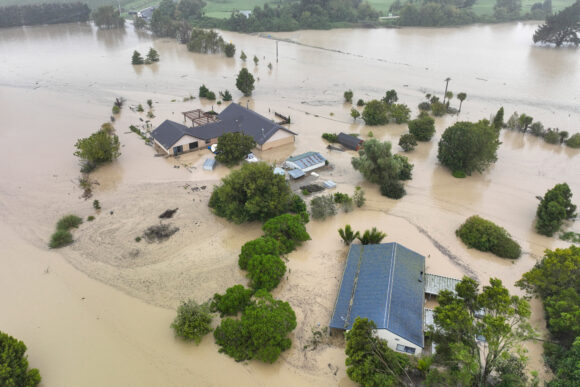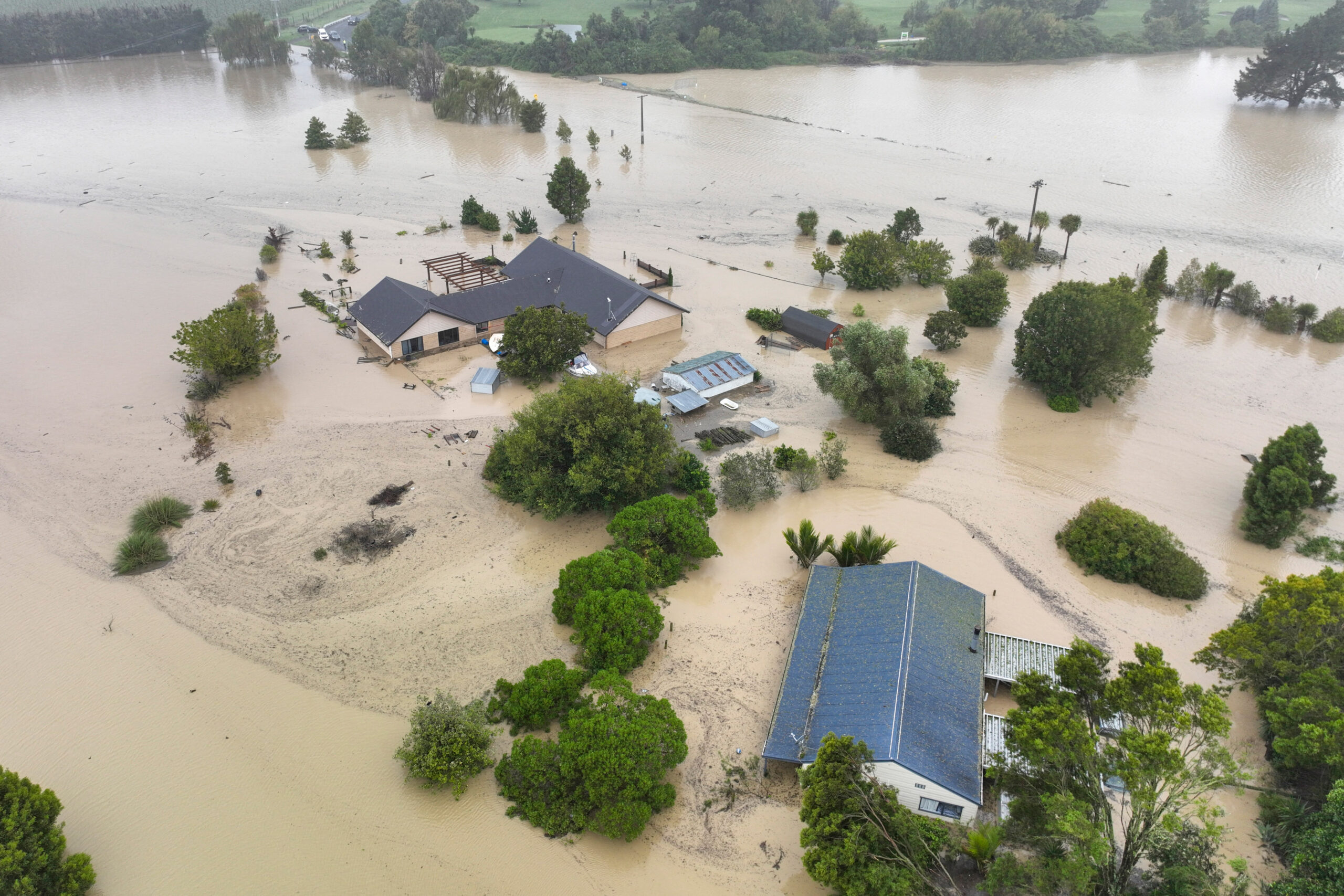New Zealanders who own properties in areas prone to flooding or earthquakes may find they can’t afford insurance or may not be offered cover for specific risks, according to the Reserve Bank.
Rising premiums or the inability to insure are a signal to homeowners that they need to reduce exposure to risks, which could include moving away from the area, the RBNZ said in a report Monday in Wellington. The central bank said so-called insurance retreat is also a long-term challenge for the financial system.
“Owners of properties where natural hazard risks have already manifested through claims are unlikely to be able to obtain comparable cover in the future, unless there has been a substantial mitigation of the now known risks,” the central bank said. “Even if the complete withdrawal of insurance availability in certain areas is some time away, owners of high-risk properties may find insurance increasingly unaffordable.”
New Zealand insurers have moved to risk-based pricing, pushing up costs in earthquake-prone areas such as capital city Wellington. More frequent climate change-related weather events — including the flooding and landslides caused by Cyclone Gabrielle in early 2023 — are also impacting prices and posing the question of whether some houses should be rebuilt in risky areas.
“It is difficult to pinpoint if and when insurers will completely withdraw the availability of insurance for certain properties, areas or risks, although it could occur relatively quickly given that contracts are typically annual,” the RBNZ said. “Withdrawal would tend to first occur in communities where these physical risks are already well known.”
A potential outcome of risk-based pricing is that insurers begin to unbundle different risks, particularly if one type of peril is a dominant driver of the unaffordability of premiums, it said. For example, unbundling could take the form of removal of flood cover for a flood-prone property in an area with low seismic risk.
The RBNZ said more work is needed to improve collection of natural hazard data, which will help insurers’ risk modeling and improve the price signals.
Banks need to be conscious of the ongoing insurability of the properties they lend against, which will require greater scrutiny in their lending decisions, the RBNZ said.
“Banks also need to pay close attention to insurance coverage given the increasing risks of under-insurance of high-risk properties over time,” it said. “Banks need to work with insurers to obtain better and more regular information on mortgaged properties’ insurance status.”
Photograph: Flooding caused by Cyclone Gabrielle in Awatoto, near the city of Napier, in New Zealand, on Feb. 14, 2023. Photo credit: STR/AFP/Getty Images

